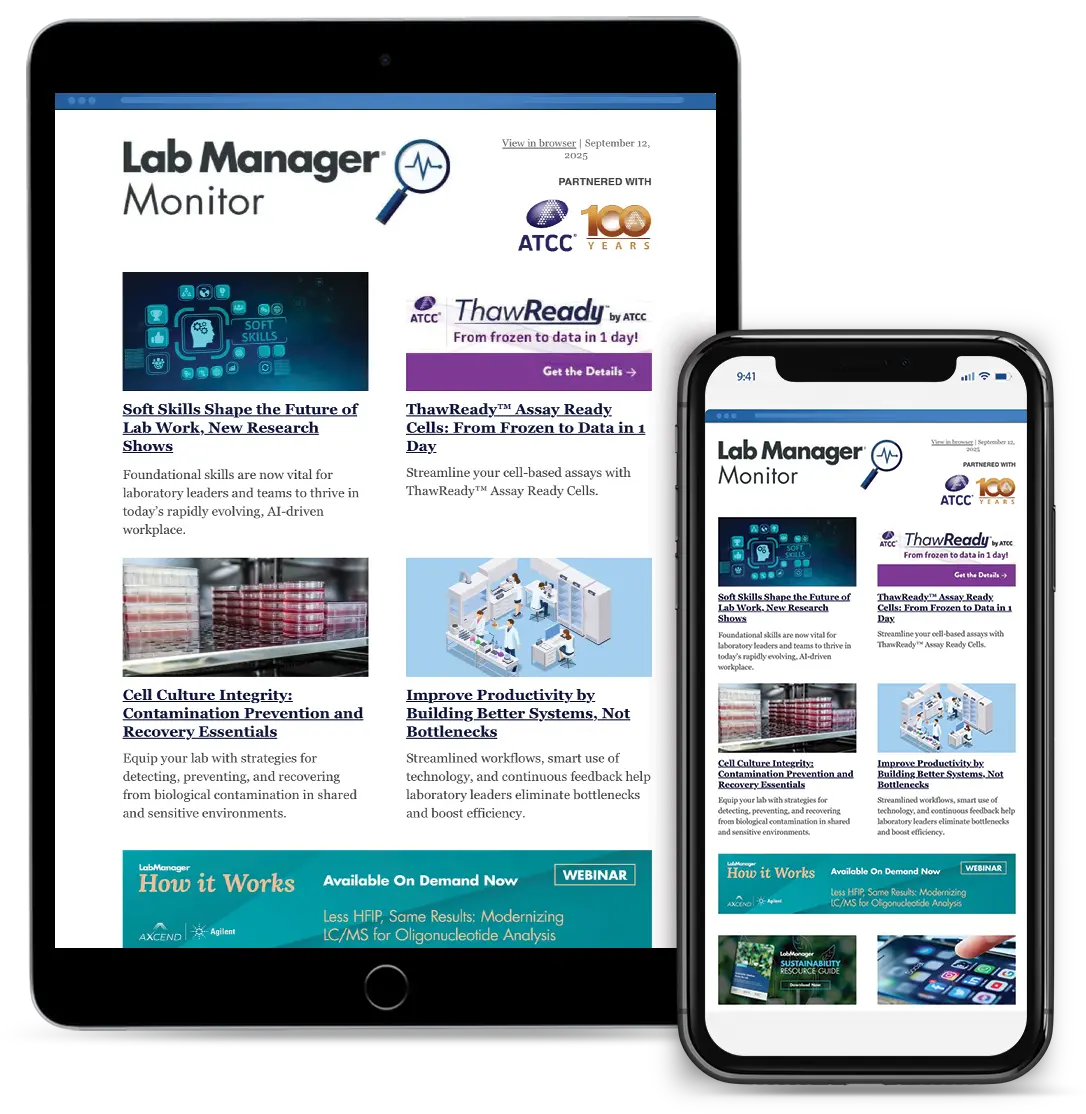One of the biggest challenges for a newly promoted laboratory manager is navigating the transition from scientist to manager. One day, you are working alongside your peers, and the next, you are overseeing them. This can be a very daunting task. There is no perfect formula to follow since every laboratory situation is different, but there are several things the scientist-turned-manager can do to be effective in their new position and create a positive work environment.
Having a proper mindset is the first thing a new laboratory manager can prioritize. Being a manager requires a different way of thinking—you now need to take the entire laboratory into account and think of the bigger picture. You will also be called to assist others with their issues and come up with problem-solving solutions.
When I first became a laboratory manager, I found this out very quickly and changed how I handled my tasks. Every day I try to touch base with everyone to see how things are going and if there are issues. When issues arise, I deal with them quickly even if I have to put my tasks on hold. A good manager should always put their staff first.
The next area that a new laboratory manager should address is the friendships you have made over the years. You can still be friends with a co-worker, but a manager cannot show or do things that may indicate favoritism. For example, if a coworker wants to go out to lunch, that is fine, but I recommend you make it a group activity for anyone in the lab to join.
After I became the lab manager, several employees came to me with concerns. They were worried that one employee “had my ear” more than anyone else and that I would be influenced by them. At first, I was taken aback because that was not the case, but I realized it was their interpretation of what they saw. This employee had come to me frequently to vent. From then on, I actively watched how I interacted with everyone. I left my office door open for non-critical discussions, made sure to visit with everyone in their offices during the day, etc. These actions reassured the employees who initially expressed concerns.
As a newly promoted manager, all eyes are on you. Everything you do is going to be evaluated, especially if there are others who applied for the position and did not get it. The lab is now looking to you for support and direction, but they are also going to have a critical eye. They want to know how you are going to handle things, see if you act differently, and determine if management made the correct choice in picking you.
A good laboratory manager needs to be deliberate and consistent in everything they do, which means some planning is needed. It is important for the new manager to pull together a vision or establish some goals for the laboratory. By sharing a vision with the staff, you demonstrate that you understand what is going on within the lab and have a plan for the future.
Before my first day as a new manager, I put together some key points of several things I wanted to see happen. On my first day, I had a staff meeting to share with everyone and get input. The meeting went very well. It helped everyone know what I was thinking, created a general game plan for lab operations, and allowed the staff input on things they wanted to see happen.
Having the meeting was the easy part. The challenge is to follow through and act on your word. I had that meeting almost eight years ago, and I am still working on what we discussed that day.
On the topic of being deliberate, there are several other things I did to help establish myself as a manager. The first was to start wearing a necktie every day. By moving from business casual to more formal attire, I wanted to indicate to the staff that I was a “different” person now. After a few weeks as manager, one of my employees asked when I was going to stop with “the whole wearing a tie thing.” I chuckled and said, “Never.” With this comment, it was apparent that my intention worked, and the staff started seeing me differently.
Another area was the work schedule. Before I became a manager, I occasionally worked remotely. Now, I rarely telework. Unplanned incidents happen all the time, and if you are not in the building, you cannot properly handle them. Also, being in the building helps you better understand what is going on. As a new manager, I recommend being open to revising your work schedule and making sure you are available for your staff when needed.
A critical skill for a new laboratory manager is being able to relate to your staff, and the key is for it to feel natural. Your staff will know if you view being in the lab and interacting with them as a chore. A good practice is to make a point to check in at different times throughout the day or ask someone a question directly rather than emailing it. These small gestures will help you connect with the individuals on your team.
Everyone has their own way of doing things. As a newly promoted manager, you need to let the staff continue to work the way they do unless there is a significant problem. You can provide input, but you cannot do the job for them. As a new manager, I found myself irritated by several things various people were doing. Before I said anything, I spent time reflecting and finally asked myself this question, “Is it a personal preference of mine or a laboratory policy?” Most of the time, I realized it was a personal preference, so I put it aside. This can be very difficult to do, but it is the right thing.
The last “deliberate” thing I did and still do with the staff is to be honest with them and ask for input and help. As a manager, I have always been quick to apologize and admit my mistakes. On day one, during that introductory meeting, I asked the staff for their patience as I learned the job. I admitted I did not know it all and was learning.
Being a lab manager is a very rewarding job. For a new manager promoted from the bench, it can be challenging. As a new manager, you are trying to figure out your new role, how to work with your staff, and how to get your tasks done. To be successful, a new manager needs to come into the position with a fresh mindset and understand that they are going to be under the microscope. Being deliberate and consistent in what you do will go a long way in establishing yourself in this new role and making the transition more successful.















